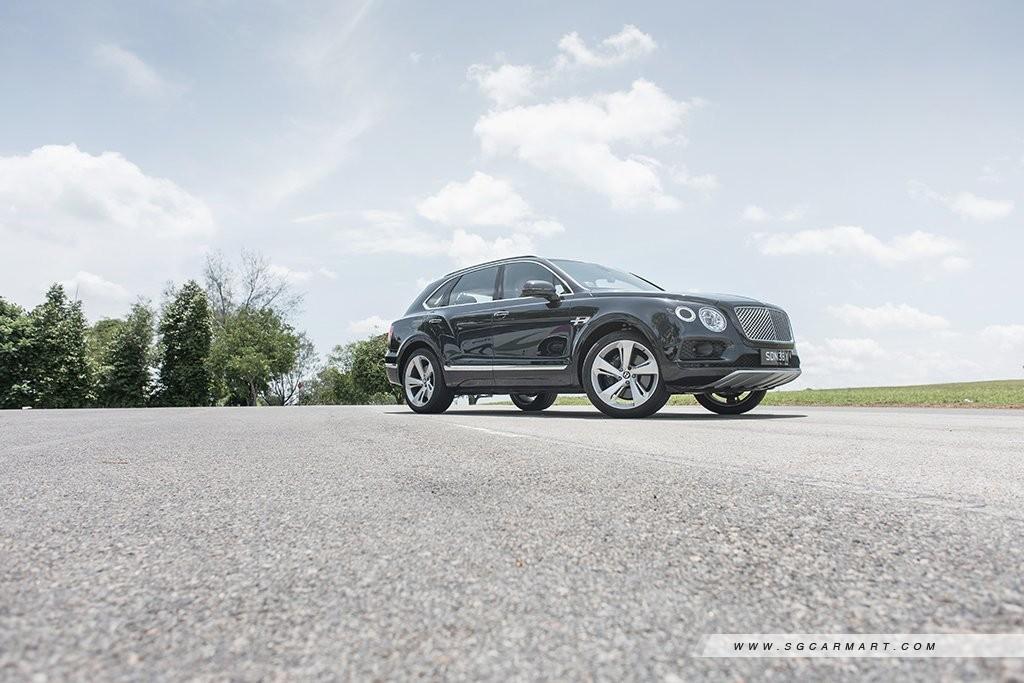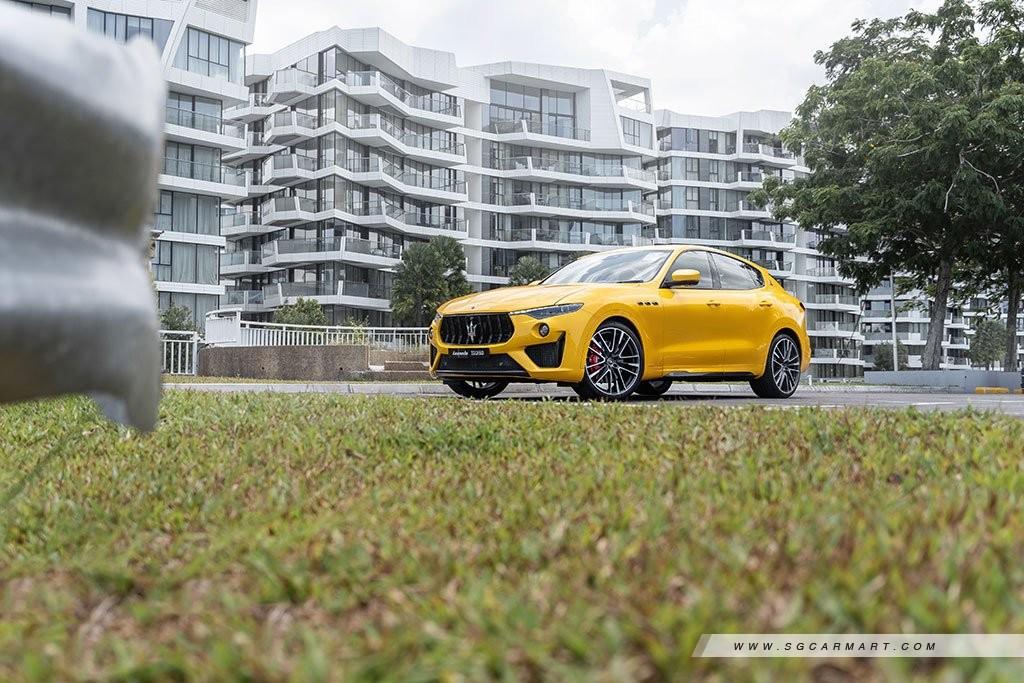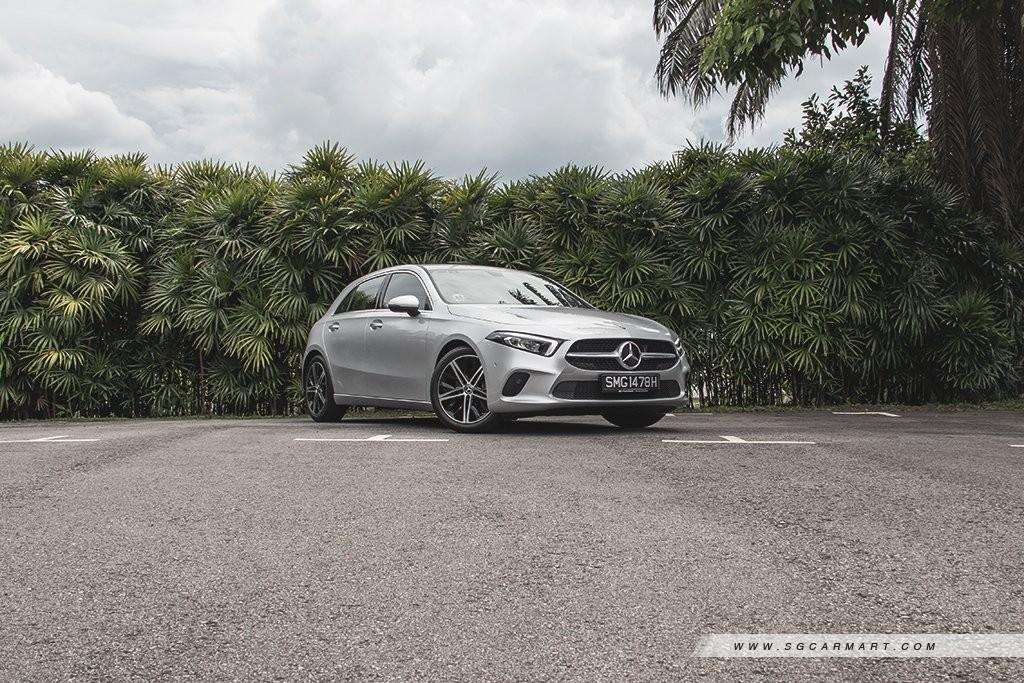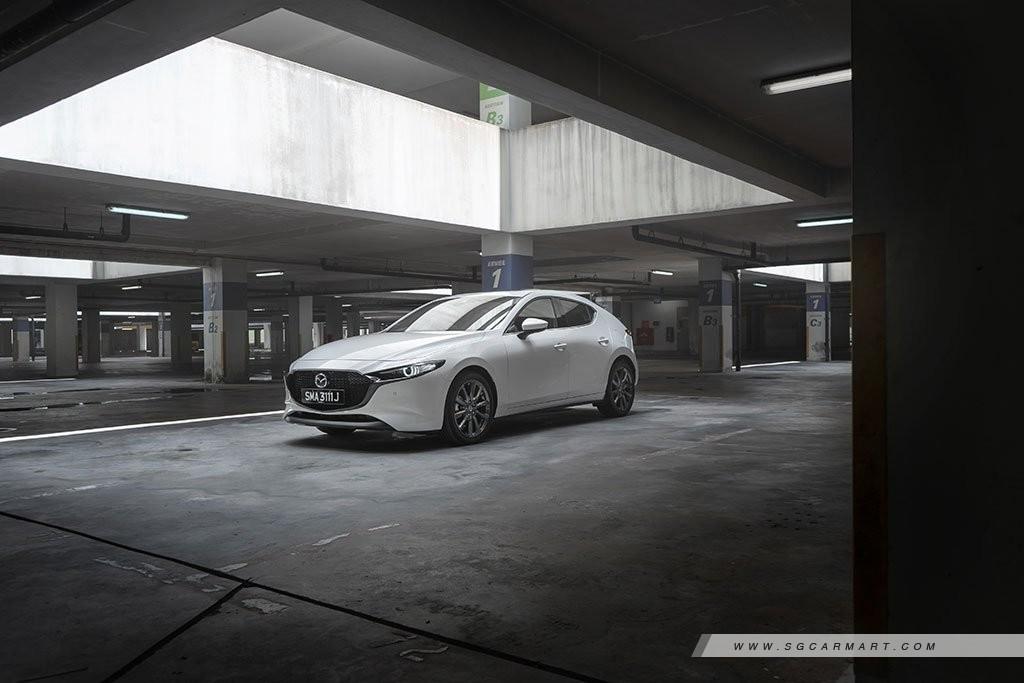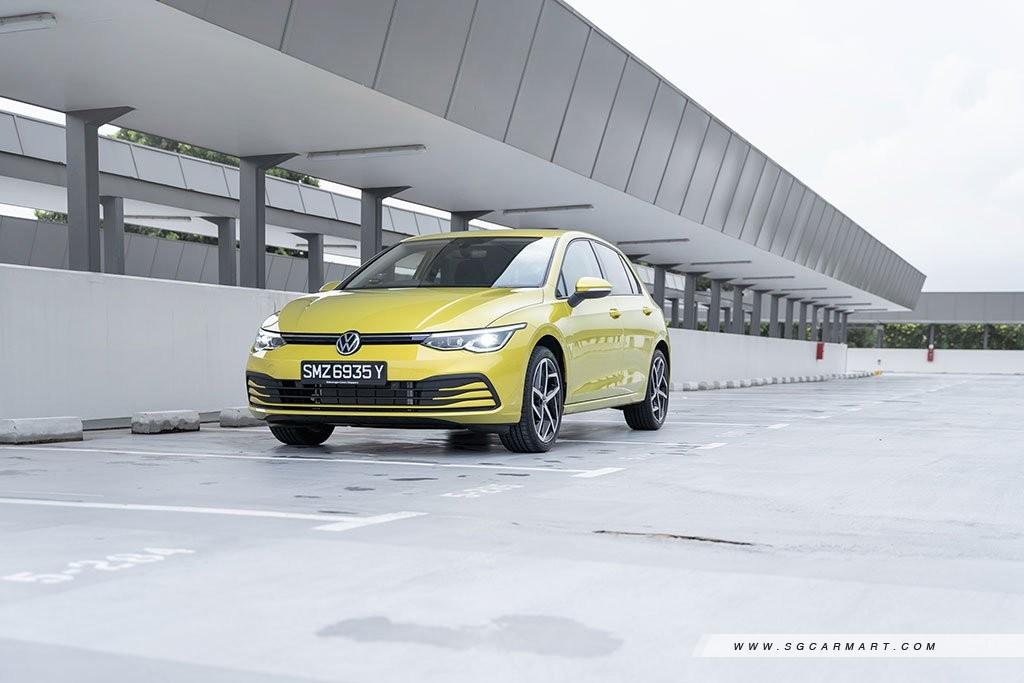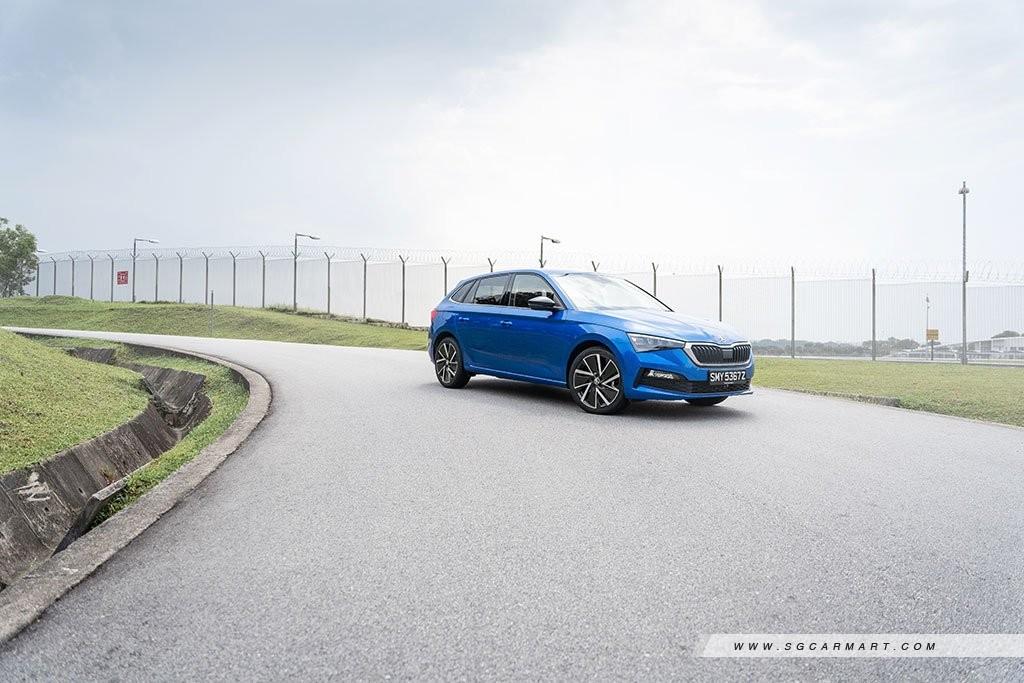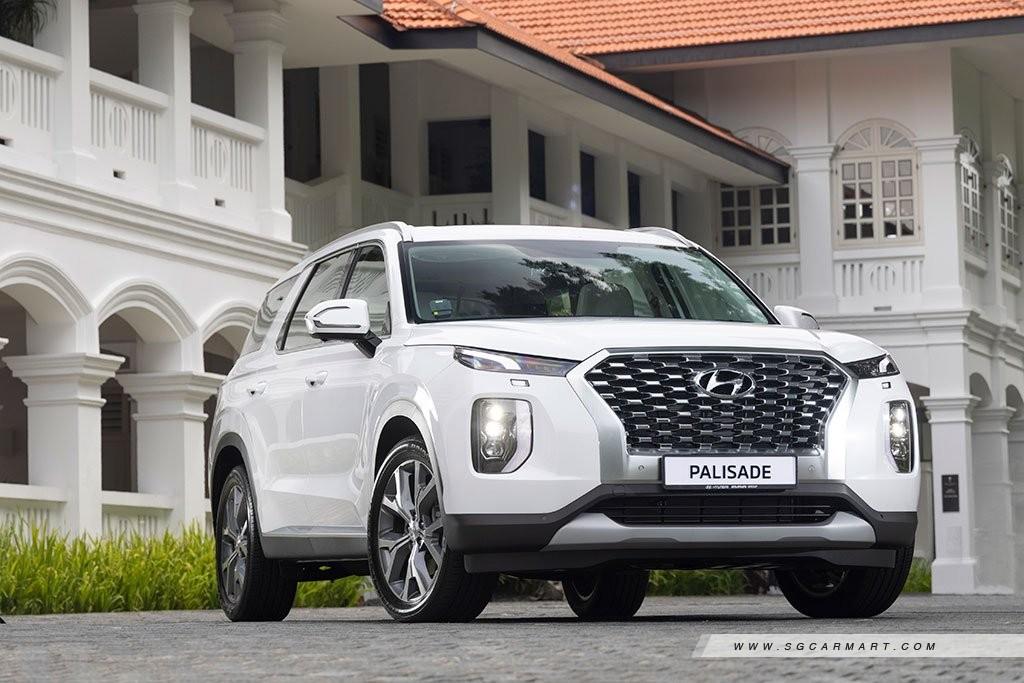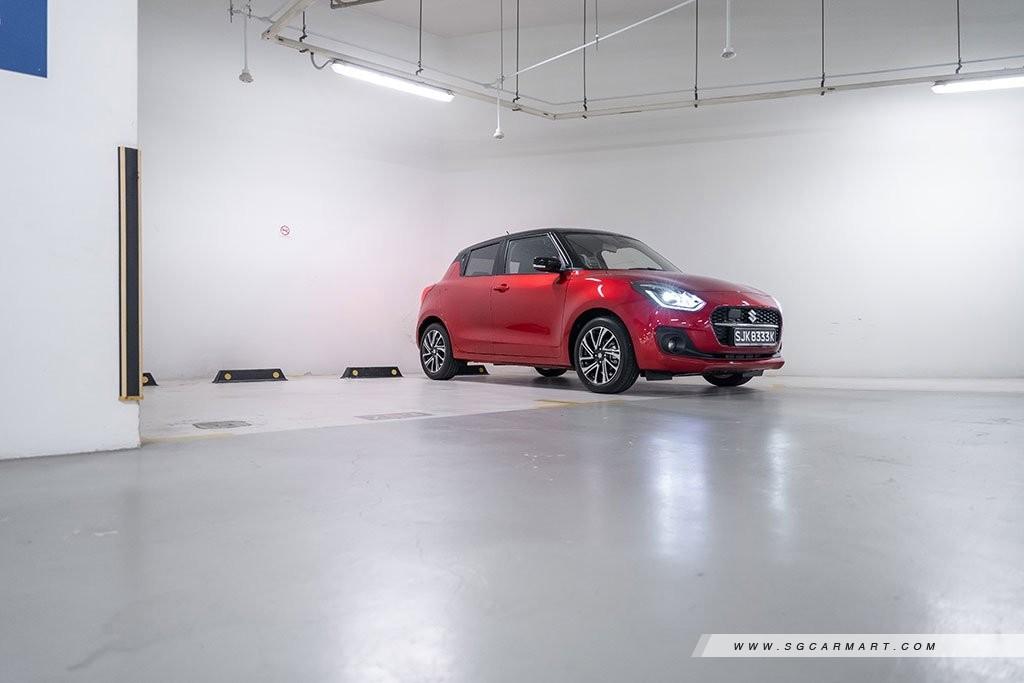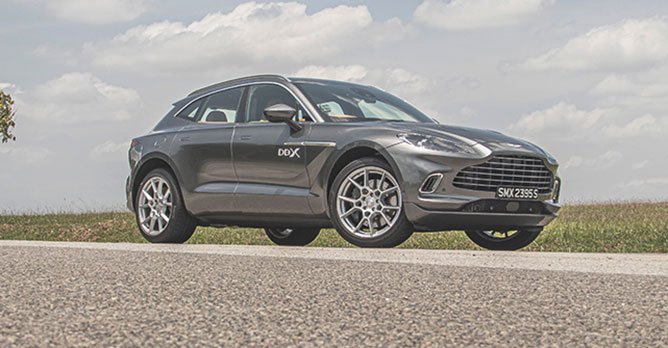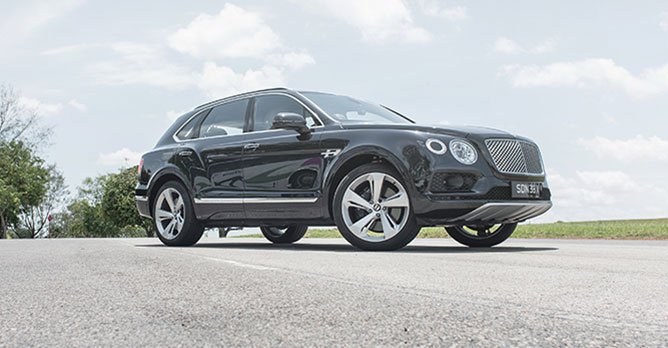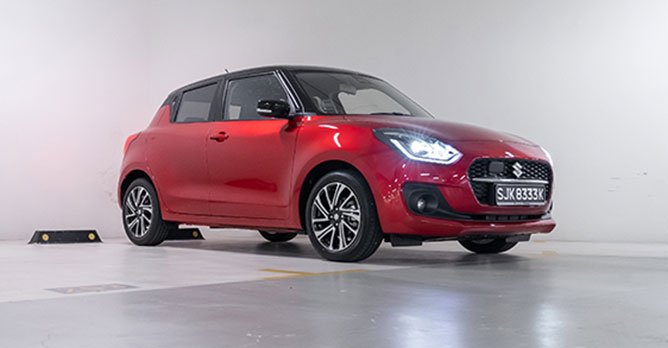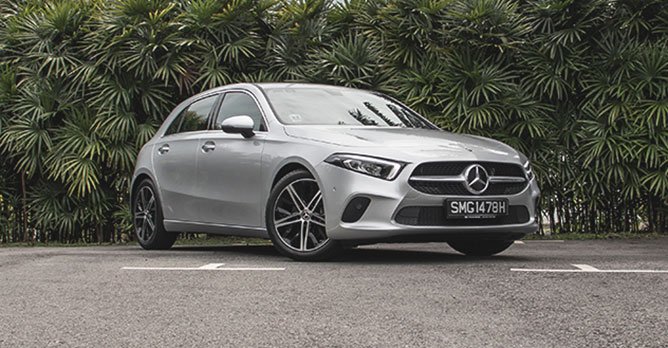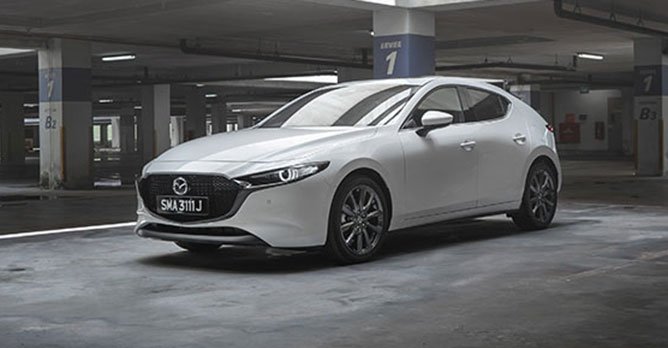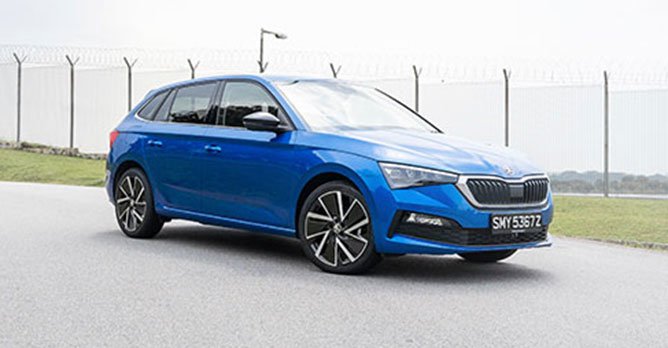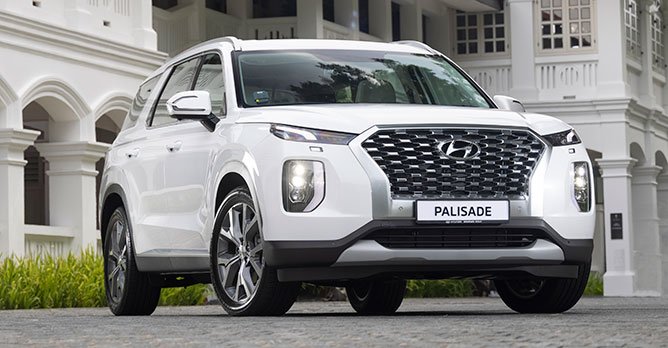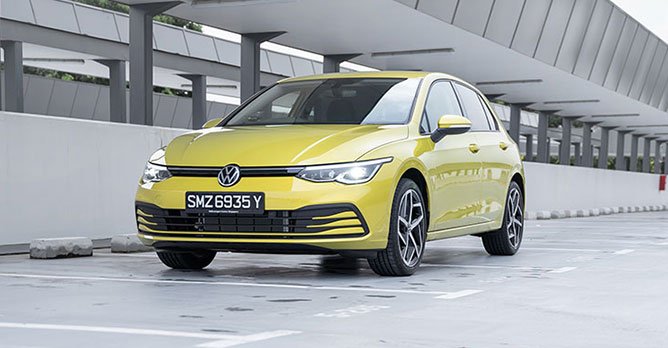For all its popularity, the latest Volkswagen Golf will face major sales hurdles
20 May 2021|15,459 views
Yes, you read the title right. The eighth iteration Volkswagen Golf just made its debut here in Singapore. It boasts more features, it's more functional and, arguably, it looks current.
But I highly doubt it'll sell as well as its predecessor.
The shift to SUVs is apparent and it's real
For one, it's the apparent shift in consumers' preference towards SUVs. And it's easy to see the appeal of these cars, with their raised seating position that offers a clear view out and easier ingress and egress, all-round practicality and rugged good looks.
Just imagine in 2017, Lamborghini debuted the Urus - something the brand called the world's first 'super sport utility vehicle'. It may not be Lamborghini's first foray into off-road vehicles (the brand made the LM002, an off-road-like vehicle that never really had any success), but it is an undeniably beautiful machine that proves that even a supercar brand needs to invest in an SUV for the sake of keeping up with the trend and a business case. But more relevantly, it's also proof that SUVs aren't just a fad, but a trend that could stick for a long time.
I say that because other than Lamborghini, the luxury SUV market has recently become crowded with other new entrants such as the Aston Martin DBX, the Bentley Bentayga, the Maserati Levante and the Rolls-Royce Cullinan. And, mind you, you could imagine these aren't the sort of carmakers that would invest in SUVs a decade ago. But they did. And for very good reasons.
In 2020, the Aston Martin DBX accounted for almost 40% of their total sales while Maserati's Levante covered 62% of theirs. The sales figures for the luxury SUVs from Bentley and Rolls-Royce are almost as impressive, at 33% and 26% respectively.
According to LTA's vehicle statistics over the past five years, the growth of hatchbacks is just shy of 3%. SUVs, on the other hand, saw a 7% growth - more than double that of hatchbacks.
Just in 2021 alone, January saw a gap between 1,058 cars between the total sales of hatchbacks and SUVs, with the latter taking the lead. Just last month, the gap between both genres of cars was 986. This decrease could be due to the launch of popular hatchbacks such as the Skoda Scala as well as the Suzuki Swift.
In the case of sedans, which are Singapore's best-selling car type according to LTA's statistics, the gap between the total sales of sedan to SUV was just 205 cars in 2020, down from 7,344 in 2019 and 8,810 in 2018. This shift shows little signs of slowing down. Thus, it's clear that the inherent shift towards SUVs will nevertheless cause a dent in the sales of every other vehicle type and, in this case, the Volkswagen hatchback.
In fact, within the first four months of 2021, Volkswagen sold more SUVs over hatchbacks. So far, the German carmaker sold a total of 104 SUVs, compared to 58 hatchbacks - a stark difference of 44%. And Volkswagen isn't the only one. Luxury carmaker Mercedes-Benz sold a total of 1,186 as compared to just 232 hatchbacks.
Arguably, the product lineup from carmakers do play a part in these one-sided figures in Singapore, but having more SUVs in their lineup as their reworked product strategies and investments just further proves the point on how strong a business case there is, locally, for SUVs.
Mercedes-Benz, for instance, only has one hatchback compared to eight SUVs. Things are more equal with Volkswagen, as it makes do with two hatchbacks compared to three SUVs.
Stiff competition
Secondly, the hatchback segment is now filled with stronger and equally capable cars. On one hand, you have the Mazda3 Hatchback, a car that's more affordable and equally functional, not to mention premium on the inside, methinks.
On the other, the all new Seat Leon - another direct competitor to the Volkswagen Golf - has already arrived on our shores. And based on past records between these two brands, the Seat Leon is expected to have a more attractive price.
Then there's the Skoda Scala, the Czech Republic carmaker's latest take on a hatchback. Arguably, the car is not in the same class as the Golf (Scala is based on the Polo), but it boasts dimensions that are slightly bigger than the Golf, and again for a more affordable price.
So that begs the question - why would people buy the all new Golf for a higher price when there are other cars out there in the market that are just as new, just as functional and yet priced more affordably?
Not too good a time to make the switch
Lastly, current market situation isn't exactly peachy, with the second wave of pandemic hitting Singapore. Thus, is it a wise thing to get a new car now? I love the new Golf and it does boast an attractive price, starting from $125,900, but loving it, boasting an attractive price and being able to actually afford the car are three completely different things.
The Hyundai Palisade boasts an attractive price and proposition for me as a family man and I totally love it, but can I afford a $215,000 SUV? No, I can't.
Of course, affordability has a lot to do with timing as well. Due to COVID-19, car launches in Singapore have been delayed and the Golf 8 is no different. In other words, one would assume that the popular and obviously likeable Volkswagen hatchback would be selling like hotcakes had it arrived before the pandemic started.
But like all things being equal, there's just no such thing as the perfect timing for the perfect car. In this case, we can all just have our cake, but we can't exactly eat it.
You'll still be seeing Golfs on the road
On that note of not being able to eat our cake, of course we'll still be seeing the latest Volkswagen Golf on the road. As it is, before the car was launched, there were already over a hundred enquiries about the hatch. Plus, a quick look at LTA's statistics showed that hatchbacks have been the carmaker's biggest seller and we all know that it can only either be the Golf or the Polo, with the former likely to be the main contributor.
The facelifted Volkswagen Golf sold a total of 2,060 units in Singapore over four years since it was launched in 2017. That's approximately 35% more than the Polo.
Thus, whatever the case and numbers may be, we'll still be seeing the latest Volkswagen Golf on the road, but I still highly doubt the all new Golf will sell as well as its predecessor.
Yes, you read the title right. The eighth iteration Volkswagen Golf just made its debut here in Singapore. It boasts more features, it's more functional and, arguably, it looks current.
But I highly doubt it'll sell as well as its predecessor.
The shift to SUVs is apparent and it's real
For one, it's the apparent shift in consumers' preference towards SUVs. And it's easy to see the appeal of these cars, with their raised seating position that offers a clear view out and easier ingress and egress, all-round practicality and rugged good looks.
Just imagine in 2017, Lamborghini debuted the Urus - something the brand called the world's first 'super sport utility vehicle'. It may not be Lamborghini's first foray into off-road vehicles (the brand made the LM002, an off-road-like vehicle that never really had any success), but it is an undeniably beautiful machine that proves that even a supercar brand needs to invest in an SUV for the sake of keeping up with the trend and a business case. But more relevantly, it's also proof that SUVs aren't just a fad, but a trend that could stick for a long time.
I say that because other than Lamborghini, the luxury SUV market has recently become crowded with other new entrants such as the Aston Martin DBX, the Bentley Bentayga, the Maserati Levante and the Rolls-Royce Cullinan. And, mind you, you could imagine these aren't the sort of carmakers that would invest in SUVs a decade ago. But they did. And for very good reasons.
In 2020, the Aston Martin DBX accounted for almost 40% of their total sales while Maserati's Levante covered 62% of theirs. The sales figures for the luxury SUVs from Bentley and Rolls-Royce are almost as impressive, at 33% and 26% respectively.
According to LTA's vehicle statistics over the past five years, the growth of hatchbacks is just shy of 3%. SUVs, on the other hand, saw a 7% growth - more than double that of hatchbacks.
Just in 2021 alone, January saw a gap between 1,058 cars between the total sales of hatchbacks and SUVs, with the latter taking the lead. Just last month, the gap between both genres of cars was 986. This decrease could be due to the launch of popular hatchbacks such as the Skoda Scala as well as the Suzuki Swift.
In the case of sedans, which are Singapore's best-selling car type according to LTA's statistics, the gap between the total sales of sedan to SUV was just 205 cars in 2020, down from 7,344 in 2019 and 8,810 in 2018. This shift shows little signs of slowing down. Thus, it's clear that the inherent shift towards SUVs will nevertheless cause a dent in the sales of every other vehicle type and, in this case, the Volkswagen hatchback.
In fact, within the first four months of 2021, Volkswagen sold more SUVs over hatchbacks. So far, the German carmaker sold a total of 104 SUVs, compared to 58 hatchbacks - a stark difference of 44%. And Volkswagen isn't the only one. Luxury carmaker Mercedes-Benz sold a total of 1,186 as compared to just 232 hatchbacks.
Arguably, the product lineup from carmakers do play a part in these one-sided figures in Singapore, but having more SUVs in their lineup as their reworked product strategies and investments just further proves the point on how strong a business case there is, locally, for SUVs.
Mercedes-Benz, for instance, only has one hatchback compared to eight SUVs. Things are more equal with Volkswagen, as it makes do with two hatchbacks compared to three SUVs.
Stiff competition
Secondly, the hatchback segment is now filled with stronger and equally capable cars. On one hand, you have the Mazda3 Hatchback, a car that's more affordable and equally functional, not to mention premium on the inside, methinks.
On the other, the all new Seat Leon - another direct competitor to the Volkswagen Golf - has already arrived on our shores. And based on past records between these two brands, the Seat Leon is expected to have a more attractive price.
Then there's the Skoda Scala, the Czech Republic carmaker's latest take on a hatchback. Arguably, the car is not in the same class as the Golf (Scala is based on the Polo), but it boasts dimensions that are slightly bigger than the Golf, and again for a more affordable price.
So that begs the question - why would people buy the all new Golf for a higher price when there are other cars out there in the market that are just as new, just as functional and yet priced more affordably?
Not too good a time to make the switch
Lastly, current market situation isn't exactly peachy, with the second wave of pandemic hitting Singapore. Thus, is it a wise thing to get a new car now? I love the new Golf and it does boast an attractive price, starting from $125,900, but loving it, boasting an attractive price and being able to actually afford the car are three completely different things.
The Hyundai Palisade boasts an attractive price and proposition for me as a family man and I totally love it, but can I afford a $215,000 SUV? No, I can't.
Of course, affordability has a lot to do with timing as well. Due to COVID-19, car launches in Singapore have been delayed and the Golf 8 is no different. In other words, one would assume that the popular and obviously likeable Volkswagen hatchback would be selling like hotcakes had it arrived before the pandemic started.
But like all things being equal, there's just no such thing as the perfect timing for the perfect car. In this case, we can all just have our cake, but we can't exactly eat it.
You'll still be seeing Golfs on the road
On that note of not being able to eat our cake, of course we'll still be seeing the latest Volkswagen Golf on the road. As it is, before the car was launched, there were already over a hundred enquiries about the hatch. Plus, a quick look at LTA's statistics showed that hatchbacks have been the carmaker's biggest seller and we all know that it can only either be the Golf or the Polo, with the former likely to be the main contributor.
The facelifted Volkswagen Golf sold a total of 2,060 units in Singapore over four years since it was launched in 2017. That's approximately 35% more than the Polo.
Thus, whatever the case and numbers may be, we'll still be seeing the latest Volkswagen Golf on the road, but I still highly doubt the all new Golf will sell as well as its predecessor.
But I highly doubt it'll sell as well as its predecessor.
The shift to SUVs is apparent and it's real
For one, it's the apparent shift in consumers' preference towards SUVs. And it's easy to see the appeal of these cars, with their raised seating position that offers a clear view out and easier ingress and egress, all-round practicality and rugged good looks.
Just imagine in 2017, Lamborghini debuted the Urus - something the brand called the world's first 'super sport utility vehicle'. It may not be Lamborghini's first foray into off-road vehicles (the brand made the LM002, an off-road-like vehicle that never really had any success), but it is an undeniably beautiful machine that proves that even a supercar brand needs to invest in an SUV for the sake of keeping up with the trend and a business case. But more relevantly, it's also proof that SUVs aren't just a fad, but a trend that could stick for a long time.
I say that because other than Lamborghini, the luxury SUV market has recently become crowded with other new entrants such as the Aston Martin DBX, the Bentley Bentayga, the Maserati Levante and the Rolls-Royce Cullinan. And, mind you, you could imagine these aren't the sort of carmakers that would invest in SUVs a decade ago. But they did. And for very good reasons.
In 2020, the Aston Martin DBX accounted for almost 40% of their total sales while Maserati's Levante covered 62% of theirs. The sales figures for the luxury SUVs from Bentley and Rolls-Royce are almost as impressive, at 33% and 26% respectively.
According to LTA's vehicle statistics over the past five years, the growth of hatchbacks is just shy of 3%. SUVs, on the other hand, saw a 7% growth - more than double that of hatchbacks.
Just in 2021 alone, January saw a gap between 1,058 cars between the total sales of hatchbacks and SUVs, with the latter taking the lead. Just last month, the gap between both genres of cars was 986. This decrease could be due to the launch of popular hatchbacks such as the Skoda Scala as well as the Suzuki Swift.
In the case of sedans, which are Singapore's best-selling car type according to LTA's statistics, the gap between the total sales of sedan to SUV was just 205 cars in 2020, down from 7,344 in 2019 and 8,810 in 2018. This shift shows little signs of slowing down. Thus, it's clear that the inherent shift towards SUVs will nevertheless cause a dent in the sales of every other vehicle type and, in this case, the Volkswagen hatchback.
In fact, within the first four months of 2021, Volkswagen sold more SUVs over hatchbacks. So far, the German carmaker sold a total of 104 SUVs, compared to 58 hatchbacks - a stark difference of 44%. And Volkswagen isn't the only one. Luxury carmaker Mercedes-Benz sold a total of 1,186 as compared to just 232 hatchbacks.
Arguably, the product lineup from carmakers do play a part in these one-sided figures in Singapore, but having more SUVs in their lineup as their reworked product strategies and investments just further proves the point on how strong a business case there is, locally, for SUVs.
Mercedes-Benz, for instance, only has one hatchback compared to eight SUVs. Things are more equal with Volkswagen, as it makes do with two hatchbacks compared to three SUVs.
Stiff competition
Secondly, the hatchback segment is now filled with stronger and equally capable cars. On one hand, you have the Mazda3 Hatchback, a car that's more affordable and equally functional, not to mention premium on the inside, methinks.
On the other, the all new Seat Leon - another direct competitor to the Volkswagen Golf - has already arrived on our shores. And based on past records between these two brands, the Seat Leon is expected to have a more attractive price.
Then there's the Skoda Scala, the Czech Republic carmaker's latest take on a hatchback. Arguably, the car is not in the same class as the Golf (Scala is based on the Polo), but it boasts dimensions that are slightly bigger than the Golf, and again for a more affordable price.
So that begs the question - why would people buy the all new Golf for a higher price when there are other cars out there in the market that are just as new, just as functional and yet priced more affordably?
Not too good a time to make the switch
Lastly, current market situation isn't exactly peachy, with the second wave of pandemic hitting Singapore. Thus, is it a wise thing to get a new car now? I love the new Golf and it does boast an attractive price, starting from $125,900, but loving it, boasting an attractive price and being able to actually afford the car are three completely different things.
The Hyundai Palisade boasts an attractive price and proposition for me as a family man and I totally love it, but can I afford a $215,000 SUV? No, I can't.
Of course, affordability has a lot to do with timing as well. Due to COVID-19, car launches in Singapore have been delayed and the Golf 8 is no different. In other words, one would assume that the popular and obviously likeable Volkswagen hatchback would be selling like hotcakes had it arrived before the pandemic started.
But like all things being equal, there's just no such thing as the perfect timing for the perfect car. In this case, we can all just have our cake, but we can't exactly eat it.
You'll still be seeing Golfs on the road
On that note of not being able to eat our cake, of course we'll still be seeing the latest Volkswagen Golf on the road. As it is, before the car was launched, there were already over a hundred enquiries about the hatch. Plus, a quick look at LTA's statistics showed that hatchbacks have been the carmaker's biggest seller and we all know that it can only either be the Golf or the Polo, with the former likely to be the main contributor.
The facelifted Volkswagen Golf sold a total of 2,060 units in Singapore over four years since it was launched in 2017. That's approximately 35% more than the Polo.
Thus, whatever the case and numbers may be, we'll still be seeing the latest Volkswagen Golf on the road, but I still highly doubt the all new Golf will sell as well as its predecessor.
Thank You For Your Subscription.


